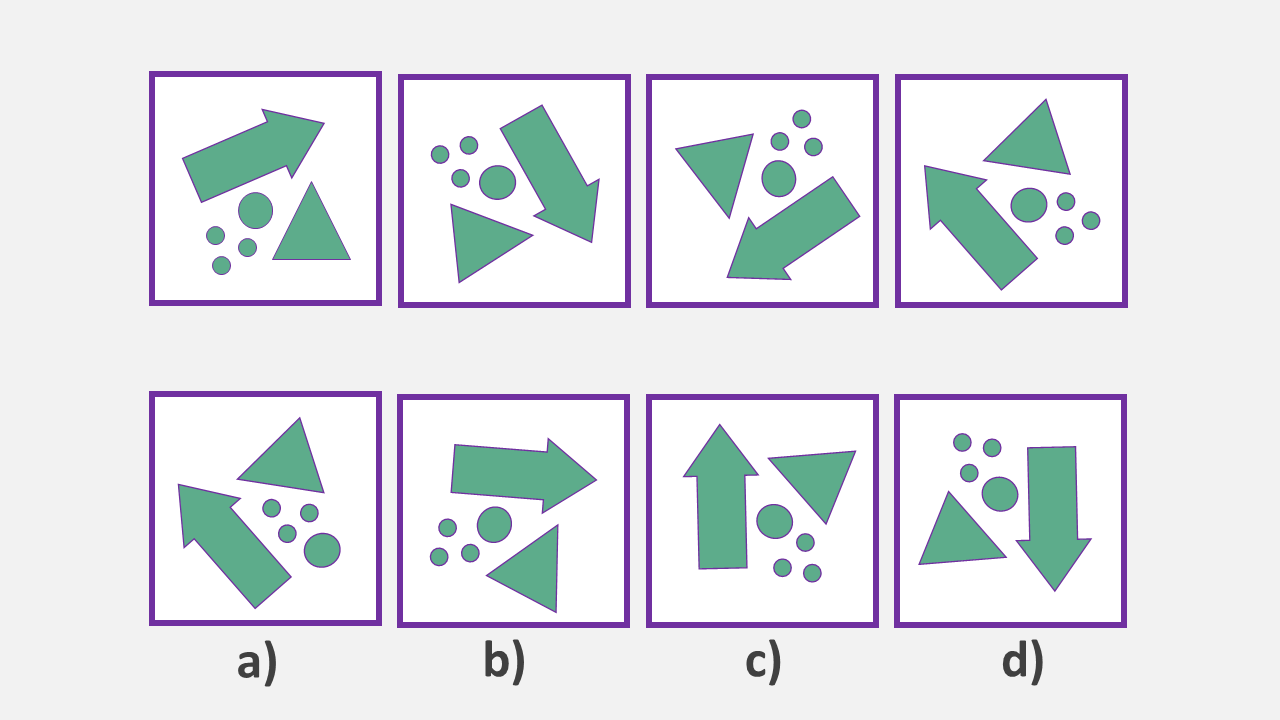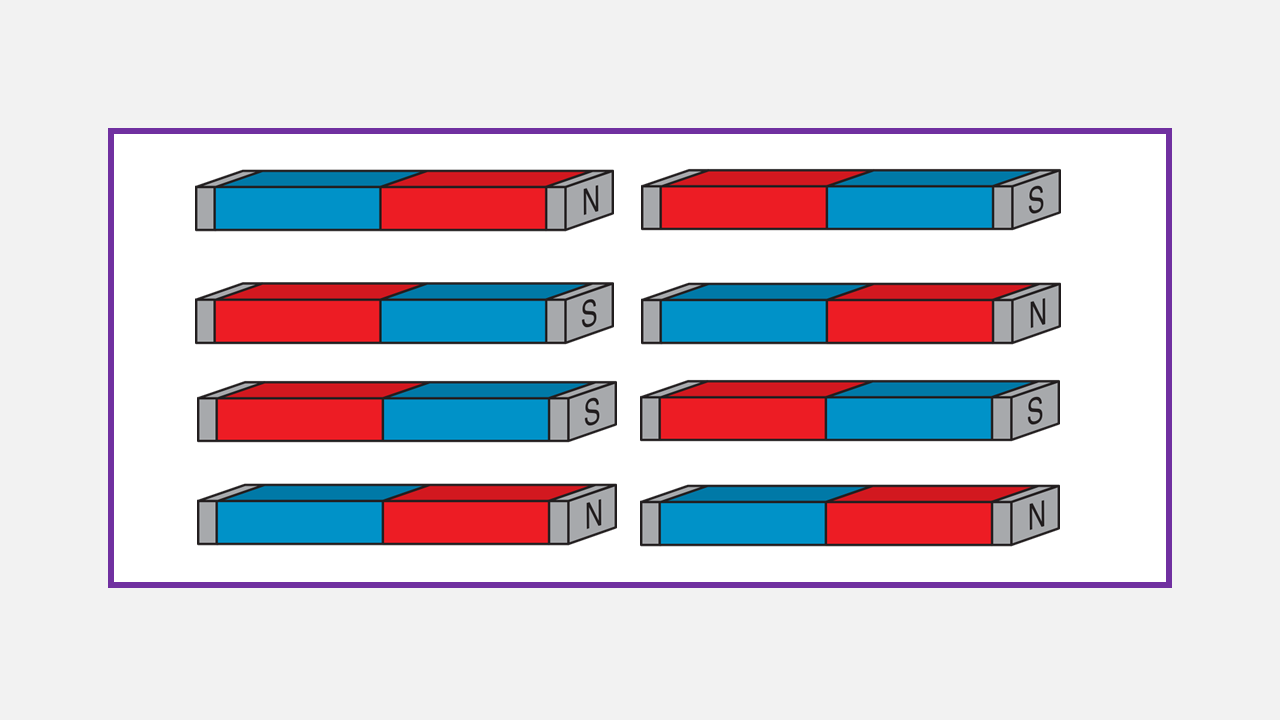
Aptitude Tests: Practice Tests/Guide/Tips
Jan 17, 2023What Are Aptitude Tests? A Study Guide
Aptitude tests are a specific type of assessment, focusing on evaluating candidates based on their innate abilities rather than things they may have learned in school or knowledge that they have from previous employment experience.
Aptitudes are essentially inherent abilities that you have, and are used as an indicator of cognitive ability, problem-solving ability or general intelligence. They are useful in recruitment because in most cases they do not need a specific level of formal education or an in-depth knowledge of the job role that has been applied for.
Many recruitment processes include some sort of career aptitude test that an applicant must take before they are considered for the role, so it is likely that if you are applying for a new job, you will be expected to take some sort of aptitude test (or sometimes more than one).
For the organization or company, an aptitude test is a quantifiable data source that provides usable information about the cognitive abilities of each candidate, how they might fit into the company culture and what their work behaviors are likely to be.
As aptitude tests become more common, knowing what to expect if you are facing one in your job hunt will make you feel more confident and empowered, so that you can achieve the necessary score to proceed further.
What Are the Different Aptitude Tests?
There are different types of aptitude tests available, and while they differ from each other in terms of content, structure and length, there are also some similarities.
Pre-employment aptitude tests are usually administered early in the recruitment process – usually just after the application form and resume have been read through. Candidates usually take an aptitude test online, which means that they can choose when and where to complete it.
Aptitude tests are usually timed. They are also made up of potentially dozens of questions, and most tests have a multiple-choice format.
There are lots of different skills that can be assessed using aptitude tests, and the most popular types of aptitude tests used in recruitment include:
- Numerical reasoning tests
- Verbal reasoning tests
- Diagrammatic reasoning tests
- Spatial reasoning tests
- Inductive reasoning tests
- Deductive reasoning tests
- Situational judgement tests
- Mechanical aptitude tests
- Personality tests
The type of test(s) that you might take depends on the type of job that you have applied for; if you need numeracy skills, you’ll probably have a numerical reasoning test, and if you are looking for a role in construction you might expect a mechanical reasoning assessment.
You might face an aptitude test at home or at an assessment center. Most of the time you will face multiple-choice questions. Usually, you will have a strict time limit to adhere to – as time constraints are a common feature of psychometric aptitude tests.
Whichever test you need to take, you can practise on TestHQ.
Aptitude Test Preparation – Aptitude Test Example Questions
Below you will find a range of example aptitude test questions and answers with solutions. These free practice questions can help you prepare and give you an idea of what to expect in the real test.
Numerical Reasoning
A numerical reasoning question tends to be based on numerical data presented in a table or a graph. You are usually required to complete some basic mathematical operation to find the correct answer from the multiple-choice options provided.
Example Question:
1. The table below shows the predicted scores of each candidate, and the scores they actually achieved in the assessment.
|
Name |
Predicted Score |
Actual Score |
|
Andrew Adams |
76 |
77 |
|
Laura Parsons |
54 |
68 |
|
Emma Graham |
65 |
45 |
|
James Franklin |
87 |
90 |
Which student achieved the highest score in the assessment compared to their predicted score?
a) Andrew
b) Laura
c) Emma
d) James
The correct answer is: b) Laura – She scored 14 marks higher than her predicted score.
Verbal Reasoning
In a verbal reasoning assessment, you are being evaluated on your ability to quickly read, understand and analyze a passage of text, and then answer questions about it. The questions are often presented as a statement, and you will have to decide if the statement is true, false or if there is not enough information to say.
Example Question:
1. The recruitment team have reported that since they have begun using pre-employment assessments when hiring for executive positions, they have recorded fewer overall costs involved in the recruitment process. The team state that this is mostly because they are able to choose the most qualified candidates in terms of experience and qualifications, augmented by the data from the aptitude tests.
The recruitment team are spending less on recruitment now.
a) True
b) False
c) Not enough information to say
The correct answer is: a) True – The passage states that there are fewer costs when using aptitude tests.
Diagrammatic Reasoning
Diagrammatic reasoning is sometimes referred to as abstract reasoning, and it is a non-verbal assessment that focuses on logical thinking.
In this assessment, the candidate is presented with a series of images or shapes in a sequence, with one item missing.
You will need to find the pattern or rule that governs the sequence, and then apply it to the multiple-choice options provided to find the right answer.
Example Question:
1. Choose the answer option that won't fit into the sequence

The correct answer is: a). This is the only answer option that is not a correct rotation of the pattern given above.
Mechanical Reasoning
Mechanical reasoning questions use basic physics and mechanical concepts to test the aptitude of a candidate in dealing with physical problems.
The questions use images of things like electrical circuits or diagrams, and you will be asked a question about it.
These questions tend to focus on things like electricity, acceleration, gears, pulleys and fluid mechanics.
Example Question:
1. Which magnets will not repel each other? (Choose all that apply).

a) Row 1
b) Row 2
c) Row 3
d) Row 4
The correct answers are: a) and b). When two similar poles of a magnet are placed together, they will repel.
Situational Judgement
In a situational judgement assessment, you will be presented with a fictional but realistic workplace scenario, presenting a problem that needs to be solved.
Following the scenario, you will be presented with several different possible courses of action that you could take to solve the problem.
You might be asked to choose the best course of action, the worst or to rank them in order of effectiveness.
Example Question:
1. A member of your team comes to speak to you about a colleague. They are complaining that their colleague has not been completing her work and is putting the team behind on a project that needs to be completed.
How would you deal with this problem?
a) Complete the work of the colleague who is struggling so the team doesn’t fall behind.
b) Ignore the complaint because it seems that it might be personal.
c) Take the struggling colleague aside and find out if they need more support.
d) Loudly berate the colleague in front of the team for not pulling her weight so they know you’ll deal with it.
The correct answer is: c) Take the struggling colleague aside. Other options might work in the short term, but this is the best way to deal with it.
Personality Test
Personality tests are the aptitude tests that are most likely to have variations in terms of structure, but the most popular ones tend to be constructed using a series of statements about work behavior and personality traits.
In the personality test, you will usually be asked to decide how much the statement describes you at work, rated on a scale from completely agree to completely disagree.
Example Question:
I enjoy taking new routes to familiar places.
a) Completely agree
b) Agree
c) Neither agree nor disagree
d) Disagree
e) Completely disagree
The correct answer is: With a personality test, there are no definitively right or wrong answers; instead, you are marked on how closely your answers match the behaviors and traits that the recruiters are looking for in a candidate.
Access Practice Material With TestHQ
How did you do with the example questions? If you were stronger at some sections over others, focus your practice on where you need it most.
For a huge range of practice material, take advantage of the TestHQ practice tests to access more than 1500+ questions and answers.
The package includes full solutions and explanations, so you can understand how to get to the correct answer and avoid those dreaded point deductions.
How Are Aptitude Tests Used?
Aptitude tests are usually used in recruitment, but they can also be used to assess employees who are already in a role to identify training requirements or decide if they are ready for a promotion or to take on some leadership roles.
For recruitment, you will usually find that the aptitude test is used relatively early in the process.
When you apply for a job, you will usually complete an application form or send in a resume and a cover letter.
The first stage of the recruitment process is known as the ‘paper sift’ and this is where the recruiters will filter through the applicants to see which ones meet the qualification and experience criteria.
The candidates who are suitable on paper are then sent a link to complete the required aptitude tests.
This usually involves taking the aptitude test online, but in some cases, you might be required to take it at a test center.
Your results will be used to decide which candidates to take further in the recruitment process; most tests will have a benchmark score that needs to be reached or exceeded, and those who achieve the score are more likely to be successful in the future.
In some application processes, you may be asked to retake some of the aptitude tests, or to take new ones, later on.
This might be to check for different skills, or to ensure that your original test results were valid.
Aptitude tests are not perfect ways to find the right candidate, but they offer a great level of insight to the recruitment team and quantifiable data about each candidate.
This in combination with the information from the resume and application form, and details from the interviews, enables a good picture of both the current level of skill and aptitude and what the candidate is capable of in the future to be built up.
How Can You Prepare for Aptitude Tests?
Practice Aptitude Tests Online
Practice tests are an excellent way to prepare. There are plenty of free (and paid-for) practice tests online that you can take, and these have value even if you do not know which test you are taking.
Practice tests get you used to the way questions might be phrased, the content they will cover and the time limits that you will be expected to work with.
If you can find out the specific type of test that you are going to be taking then you can focus your practice on the aptitudes needed for that – and if you can find out the publisher, you can be really specific.
When you are practicing, make sure that you are treating it as you would the real thing – work somewhere quiet, make sure there are no distractions and use a stopwatch for timing.
After the test, you can use your results to help you decide if there are any areas where you might need some work to get better, or where some more practice might be useful.
Read the Questions Carefully
When you are under time pressure, it can seem difficult to take the time to read the questions – but if you don’t, then you could risk missing simple marks.
While in most cases the questions are straightforward, there can be trick questions – or the question might be looking for something other than what you think it is looking for.
Take time to carefully read each question rather than assuming you know the answer.
Don’t Spend Too Long on Challenging Questions
Aptitude tests might ask some challenging questions, but it is better to not spend too much time on a question that you are struggling with.
With the tight time limit that is a feature of these tests, you could miss answering an easy question later on by spending too much time on the more difficult ones.
It is usually better to try and answer more questions correctly than getting fewer, but harder, questions right.
Practice Timings Through Practice Aptitude Tests
One of the main features of a general aptitude test is the pressure that it puts you under – this is to simulate a workplace environment. To do this in the test, you will usually have a short time limit.
Time limits in aptitude tests will usually equate to less than a minute per question, and sometimes only a few seconds.
When you are practicing with sample aptitude test questions, make sure that you are being strict about your time limits so that you understand how quickly you will need to answer in the ‘real’ thing.
Revise Certain Basic Maths and English
Although aptitude tests are not based on education and need no formal knowledge or experience, to be successful you will need to be confident in reading basic English and completing simple mathematical operations.
The math skills needed include general addition, subtraction, division and multiplication, as well as percentages, ratios and fractions. You don’t need a math degree to be able to answer the questions, but you will need to feel confident completing different sums with and without a calculator.
In terms of English skills, one of the best things that you can do to prepare is to read more widely. Fiction and non-fiction, newspapers, blog posts, scientific journals – all are useful in helping you to be more confident in your reading skills and to widen your vocabulary and understanding of words.
Ensure Equipment Is Working Well
As these aptitude tests are usually taken online, you need to make sure that the equipment you have at home is up to the task. You will usually need a laptop or PC with a reliable connection to the internet, as well as an up-to-date browser.
Some tests might require you to have working speakers so that you can hear questions or watch scenarios, but you will be informed if this is true of your test.
If you need any other equipment, like a calculator, you will be told before the test.
Prepare a Distraction-Free Area
An aptitude test is an important part of the application process – and if you really want the job, you will need to pass the test before you can proceed further.
To give yourself the best chance of success, take the test somewhere that you will be able to avoid distractions. This means no disturbances from roommates or family and turning off notifications. Make sure that you have enough space to work, as well as access to a drink if you need it.
Practice Good Well-Being
Looking after yourself is important in general life, but it is even more important when you are going to be taking a test.
If you think about your body being a machine, you need to give it the right fuel – which means eating healthy meals, staying hydrated and getting enough sleep.
Your brain will work more efficiently if it is given the right nutrition and a good amount of rest.
Don’t Be Tempted to Cheat
When you are applying for your dream job, there is a lot of pressure to perform – and this might make you consider getting ahead by nefarious means.
Whether or not it is easy or even possible to cheat on your aptitude test, it is not a good idea. Not only could you miss out on the job that you have applied for, but you could also ruin your chances of getting a job elsewhere too.
There are mechanisms in place to catch cheating on aptitude tests, including repeating the tests at a later date and under supervision, so it isn’t a good idea.
Focus on the Reward, Not on the Test
Tests can be nerve-wracking, and it is completely normal to be nervous about the aptitude tests that you are taking.
However, it is important that you have something else to focus on, so look towards what passing the test will mean for you in the future – getting that perfect job.
How Do You Pass an Aptitude Test?
In simple terms, passing an aptitude test just means getting enough answers right to reach or exceed the pass mark.
In practice, getting to that score can be difficult.
Each test will have a specific pass mark. These might be set by the publisher of the test, or by the specific company that you have applied to. These benchmarks might be published, or they might not; sometimes they might change depending on the quality of applicants in the cohort.
The best way to ensure that you meet or exceed the required score for the aptitude test is to answer as many questions correctly as fast as possible.
Frequently Asked Questions
What Is the Purpose of Aptitude Tests?
An aptitude test for employment is used to screen candidates for a job role based on their inherent skills, rather than their qualifications and experience. Aptitudes that are evaluated include verbal, numerical and logical reasoning, as well as situational judgement and personality traits.
How Can I Practice an Aptitude Test?
Aptitude tests can be practiced online. If you know the type of test that you are facing, then you can find those tests on sites like TestHQ and try out different ones.
If you are lucky enough to know the publisher, you can get very granular about the practice tests that you choose so that they are really similar to the one that you will face in the real assessment.
What Online Tools Can I Use for Aptitude Test Preparation?
Preparing for an aptitude test is mostly about practicing the test itself. The content of an aptitude test is not challenging, but many people find them difficult because they are unfamiliar.
Using practice aptitude test questions and answers with solutions will allow you to get used to the structure and layout, understand the answers and deal with the pressure of the time limit. You can find a variety of paid-for and free online aptitude test options to help you prepare.
Are Aptitude Tests Hard to Pass?
The content of an aptitude test is usually quite straightforward, and you do not need to have in-depth knowledge of any subject to be successful.
However, the test structure, time limit and the general pressure and unfamiliarity of the assessment can make it hard to pass. It is also a challenge to reach the required score to be taken further in the recruitment process.
What Is a Basic Aptitude Test?
A basic aptitude test is an assessment of inherent skills like literacy, numeracy and logic. Aptitude tests are used in the recruitment process to help choose the candidates who are most likely to be successful in the role because of their personal attributes, rather than their education and experience.
Which Is the Best Website to Practice Aptitude Tests?
For the widest range of aptitude tests to practice, including those that are publisher-specific, the best place to practice is TestHQ. Here you will find lots of practice tests, revision guides and other helpful resources designed to help you ace your test.
What Is the Hardest Aptitude Test?
As aptitude tests are designed to assess your natural abilities, you are more likely to find aptitude tests hard when they involve something that you are not comfortable with.
In this way, a numerical reasoning test is likely to be hardest for you if you are not confident with basic mathematical operations, and a mechanical reasoning test is likely to stump you if you are not comfortable with physics principles.
Finding aptitude test sample questions and answers to practice with will help you determine your strengths and weaknesses so you can see which areas you may need to focus on during your preparation.
When Will I Find Out My Result After Taking an Aptitude Test?
The recruitment team will let you know when you can find out your result from taking an aptitude test, and in some cases, you might be provided with a full report on your performance, depending on the type of test and the test publisher.
What Is the Most Widely Used Aptitude Test?
The most widely used aptitude test is either the numerical reasoning test or the verbal reasoning test.
These are often used in combination because they look at literacy and numeracy, which are two important inherent skills for a candidate to have.
Where Can I Find Sample Questions for Aptitude Test Preparation?
If you know the publisher of the aptitude test that you are about to take, then you can often find practice aptitude test example questions on its website.
If not, or if you want some more practice, then TestHQ has extensive practice tests, sample aptitude test questions and other resources designed to give you the best chance of passing.
Can You Cheat on Aptitude Tests?
While it is possible to cheat on most aptitude tests, it is not a good idea. Not only could you risk losing the opportunity for the job if you get caught, but you may also not be suitable for the job if you do pass.
Companies tend to have a failsafe in place to find out if people are cheating, including things in the tests themselves, or by making candidates take the tests again but under supervision.
Can You Retake Aptitude Tests?
If you fail an aptitude test, your application will not be taken further.
However, you may be able to reapply for the role at a later date, and this means that you should have another opportunity to take the aptitude test.
Final Thoughts
Aptitude tests are widely used in the application process for roles across many industries and at all levels, so if you are in the market for a new job, the chances are high that you will have to take one.
With this in mind, being aware of what is ahead of you and being prepared is the best way to ensure that you perform as well as you can. Take both free aptitude test options and paid-for practice tests of all kinds, if you can, and when you know which test (and which publisher) you’ll be taking, you can focus your practice on the assessments that are most relevant.
For aptitude tests, practice really does make perfect.






